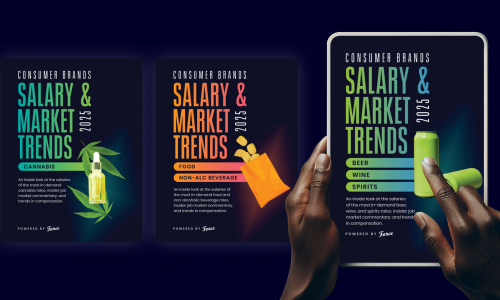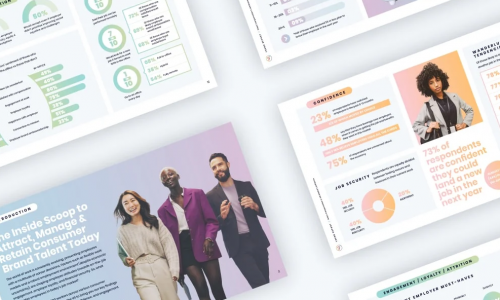The vibrant landscape of food and non-alc beverage is largely defined by startups setting the pace of innovation; transformative technologies changing how products are made; and consumers driving the narrative around more mindful, healthier living. Companies eager to remain competitive with their hiring strategies should look at their benefits and compensation packages as they’re the most effective tools for employee recruitment and retention.
As part of our 2019 Talent Market Report, we’re pleased to introduce you to our specialized food and non-alc beverage edition that explores the most popular incentives currently being offered; insights into what’s ahead for 2020; retirement benefits and leave averages; relocation package offerings; alternative incentives when unable to match desired salary; annual raises and variable pay incentives; and fair market compensation data.
ForceBrands surveyed more than 500 full-time professionals across the consumer products industry to examine the CPG talent market in more detail. This report looks at the data from the food and non-alc beverage respondents who make up 33 percent of the total participants surveyed. Our respondents — hiring decision-makers including leaders at the Director, President/VP/SVP, C-suite level — were recruited to gather compensation and hiring data.
Some highlights from our data include:
- When it comes to raises, small companies under $50M in revenue offer an average annual raise of 5 percent while large companies with more than $50M in revenue offer an average annual raise of 10 percent raise, bringing the total food/non-alc beverage industry average raise to about 7 percent, well above the national average of about 3 percent.
- Large companies with more than $50M in revenue are paying up for top talent. If unable to meet a candidate’s desired salary, large food and non-alc beverage companies are enticing talent to pay for their relocation costs, and offer sign on bonuses.
- Small food and non-alc beverage companies under $50M in revenue are currently offering perks that support work-life balance, like generous kinds of leave — maternity, paternity, family, and bereavement leave. Small companies are also offering many cost-effective perks like off-site social opportunities and free meals.







